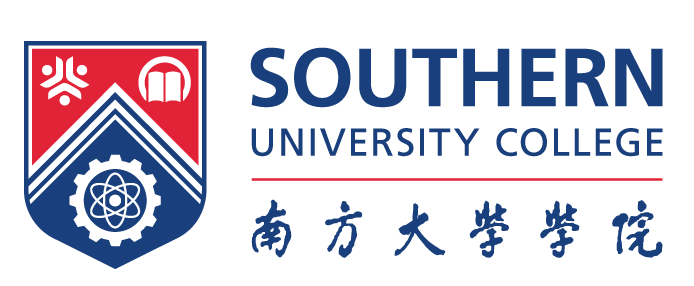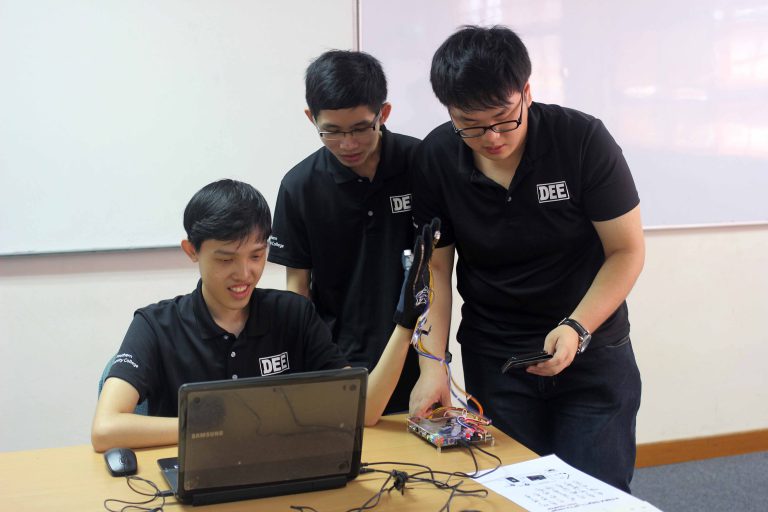Diploma in Electrical & Electronic Engineering
R3/0712/4/0011(MQA/FA13364)04/29
Course Duration: 2 Years 6 Months
Based on the Industrial Revolution 4.0 (IR4.0), engineering technology, business, and industrial needs, the curriculums are designed to provide students with practical knowledge in the applications of electrical and electronic engineering.
The graduates will be well equipped with the engineering knowledge, problem analysis, investigation, and the design related to the electrical and electronic engineering. The graduates will also be trained in non-technical skills such as communication, teamwork, leadership, etc. to enrich their knowledge. Graduates will have better opportunities of being employed in the technical and non-technical sectors.
Programme Educational Objectives (PEOs)
PEO1: Graduates who are capable in handling engineering issues.
PEO2: Professional graduates who continue upgrading their engineering knowledge.
PEO3: Graduates that execute professional characteristics in terms of engineering practice and ethical conduct, sensitivity in sustainability issues and multi-cultural society.
Program Learning Outcomes (PLOs)
PLO 1 – Knowledge:
Ability to apply acquired knowledge of applied mathematics, applied science and electronic engineering to well practical procedures and process.
PLO 2 – Problem Analysis:
Ability to identify and analyze well-define engineering problems.
PLO 3 – Design/Development of Solutions:
Design solution for well-define engineering problems and assist with the design of the systems, components or processes to meet specified needs with appropriate consideration for public health and safety, cultural, multi-cultural society and the environment.
PLO 4 – Investigation:
Ability to conduct investigation of well-define engineering problems; locate and search relevant codes and catalogues, conduct standard tests and measurements.
PLO 5 – Modern Tool Usage:
Ability to apply appropriate techniques, resources, modern engineering and IT tools to well-define engineering problems, with an awareness of limitations.
PLO 6 – The Engineer and Society:
Ability to demonstrate knowledge of the societal, health, safety, legal and cultural issues and the consequent responsibilities relevant to engineering technician practice and solutions to well-define engineering problems.
PLO 7 – Ethics:
Ability to understand and commit to professional ethics and responsibilities and norms of technician practice.
PLO 8 – Environment and Sustainability:
Ability to understand and evaluate the sustainability and impact of engineering technician work in the solution of well-define engineering problems in societal and environment contexts.
PLO 9 – Individual and Team Work:
Ability to function effectively as an individual, and as a member in diverse technical teams with multi-cultural background.
PLO 10 – Communication:
Ability to communicate effectively on well-define engineering activities in both written and verbally in the engineering community and with multi-cultural society.
PLO 11 – Life Long Learning:
Ability to recognize the needs for, and have the ability to engage in independent updating in the context of specialized technical knowledge.
PLO 12 – Project Management and Finance:
Ability to demonstrate knowledge and understanding of engineering management principles to manage projects as a member and a leader team, in multi-disciplinary environment.
Common Core
Core Modules
• Technical Mathematics
• Calculus I
• Calculus II
• Engineer and Society
Discipline Core
• Digital Techniques II
• Microprocessors
• Physics I
• Physics II
• Electric Circuits I
• Electric Circuits II
• Electronics I
• Electronics II
• Project & Practice I
• Project & Practice II
• Power Electronics and Electric Machines
Departmental Elective
2) Basic Power System
University College Elective
• Fundamentals of Management
Industrial Training
Career Path
• Electrical Technician
• Electronic Technician
• Site Supervisor
• Production Supervisor
• Assistant Executive Planner
• Service Technician
• Technician/ Supervisor
Entry Requirement
- SPM/O-Level: 3 credits including Mathematics and General Science/ Physics / Chemistry / Engineering related subject
- UEC: Grade B in 3 subjects including Mathematics and General Science / Physics / Chemistry / Engineering related subject
- Others: Other recognized equivalent qualifications
- English Competency Requirement for International Student: IELTS 5.0 / its equivalent

